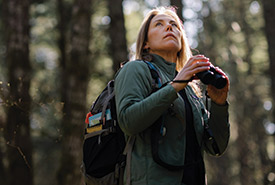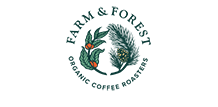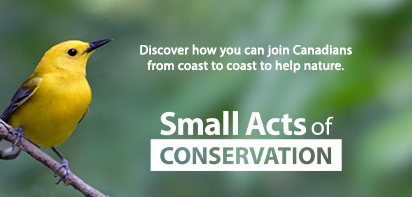Telling it like it is

Aerin Jacob (Photo by Albert Law)
Aerin Jacob on big thinking and genuine communication in conservation
Growing up, Aerin Jacob spent part of her summers at a family camp, north of Ontario’s Lake Superior. Her family would catch an overnight train from Toronto and sleepily meet her grandparents beside the railroad tracks after the long trip.
Jacob vividly remembers the call of the loon and the crunch of leaves under her feet, as she walked through the forest that surrounded the small lake. Her family lived in different parts of Canada and internationally, and she enjoyed lots of time spent in nature and exploring new places. “A common theme was our responsibility to other creatures,” says Jacob. “And trying to leave things better than you found them.” Jacob joined the Nature Conservancy of Canada (NCC) in September 2022 as its director of conservation science and research, after six years with the Yellowstone to Yukon Conservation Initiative.
She has a deep well of experience to draw from, including designing and leading research across Canada and internationally, and authoring more than 50 scientific papers, technical reports and book chapters. Jacob is an adjunct professor, has served on panels and committees, and has received fellowships and awards for her conservation work. Jacob is a leader in encouraging conservation rooted in science, conducts research and supports projects with more than 150 research partners across Canada. She oversees NCC’s Weston Family Conservation Science Fellowship Program for masters’ and PhD students who conduct research about NCC-identified priorities, such as species at risk, ecological connectivity and invasive species.
“The fellowship program is really fun and meaningful,” says Jacob. “There’s so much energy about working with young people who have new ideas and are the next generation of conservation leaders.”
Together, the priorities identified by NCC help to ensure the quality of conservation work, not just the quantity. “We need to be careful to be doing the right things in the right places and measuring our successes or failures over time,” she adds.“To ensure we’re always striving to be better.”
The big picture is a theme throughout her work. She stresses the importance of looking at multiple threats to nature, with individual and cumulative impacts, and how different solutions can work together.
“It’s about working on the biggest threats and courageous solutions so that we’re not just tinkering around the edges,” says Jacob. Communicating scientific knowledge is an important piece of the puzzle for her. She wasn’t always a comfortable public speaker, but has embraced it as an important way to mobilize scientific knowledge and conservation action more widely and effectively.
Throughout the 2022 UN Biodiversity Conference (COP15) in Montreal, she was busy with media interviews and public speaking. As a conference attendee she says she felt inspired. “It was important to see Canada walking the talk about ambitious conservation and Reconciliation, which includes more funding and actively supporting Indigenous-led work.”
Jacob believes there is an increased emphasis on the importance of Indigenous Knowledge in conservation. “It’s a significant, much-needed, shift,” she says. “Science and Indigenous Knowledge are both valid types of evidence, and we need to learn from both. Humility is important for scientists in this regard. It’s about being open to expertise from people who were trained in different ways.”
Growing up, Jacob imagined her future self in different roles, including as a veterinarian or journalist. She sees a theme of service to community and environment in her aspirations. She also admits, with a laugh, that she was a nerdy kid. “My younger self would probably be really happy to know that you can make a career out of loving animals, the outdoors and always wanting to learn more,” she says. “Don’t hide that enthusiasm; use your voice to help others.”
This story originally appeared in the spring 2023 issue of the Nature Conservancy of Canada Magazine. To learn more about how you can receive the magazine, click here.



